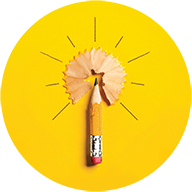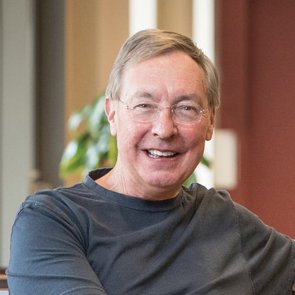A Look Back. A Look Ahead.
Photo Credit: Emma Jean George
Around 2010, I connected some dots. Nothing original, for sure, but original to me. Technology is moving ahead at warp speed, but our education model is stuck in time. Millions of adults are ill-prepared for career, citizenship, and life – endangering the very future of civil society. Back in 2010, these views seemed alarmist. Today, they are evident.
We started with the film Most Likely To Succeed, which premiered at Sundance almost ten years ago! This timeless film offers a powerful way to build community support for thoughtful innovation. Consider something bold, like screening it over Zoom with an active chat flow. And stay tuned for our big ten-year anniversary MLTS celebration.
As the saying goes, one thing led to another. As MLTS neared completion, the remarkable Tony Wagner and I co-authored the book Most Likely to Succeed (available on Kindle Unlimited). Then, I started traveling. And traveling. And traveling. In the single 2015-2016 school year, I visited 200 schools across all fifty U.S. states, leading to my book What School Could Be: Insights and Inspiration from Teachers Across America.
Out of the blue in 2018, Sir Ken Robinson called, suggesting that the two of us form a non-profit to support educator-driven innovation. We were off, creating the powerful Innovation Playlist and the vibrant What School Could Be community. We were set to launch our non-profit at a plenary SxSWedu keynote, on March 14, 2020. Then, COVID hit. SxSWedu was canceled. A few days later, Sir Ken called with a health update. On August 21, 2020, the world lost this towering figure. I can attest first-hand to Sir Ken’s warmth, insight, humor, and exquisite humanity. As I write this, tears flow.
Under the leadership of powerhouse Josh Reppun, the What School Could Be Community has blossomed – book discussions, thought-provoking guest talks, and its Atlas Gang initiative. Josh also hosts the remarkable What School Could Be podcast – substantive, mesmerizing, and revealing. Listeners are voting with their ears, with over 100,000 downloads to date.
Under Kapono Ciotti’s leadership, we now offer transformational, in-the-field professional learning that is relevant, meaningful, and transformational. While typical professional development is too often compliance-driven or test-score oriented, what WSCB is facilitating in schools and districts across the country, in fact, across the world, is about transforming schools and school systems through our theory of change: mobilize your community, small steps to big change, invite and celebrate, and a bias for action. The highlight is the WSCB PEAK School Distinction, a process through which schools and districts can assess their strengths and growth areas, engage in bespoke professional learning, and earn a recognition of excellence.
We continue to build out our suite of resources. We produced the informative piece below, in collaboration with ASU’s Mary Lou Fulton Teachers College, to showcase the power of team-based teaching. It’s perfect for faculty professional development sessions. And we’ve been on the ground in Michigan capturing district-wide bright spots that are catalyzing innovation across the state.
The recent launch of generative AI engines injects code-red urgency into re-imagining education. A decade ago, Most Likely to Succeed was ahead of its time in anticipating the tsunami of machine-learning disruption heading our way. Today, the tsunami is upon us. AI will wipe out millions of “tell me what to do” jobs – particularly hurting fresh college grads. Also, AI will turbo-charge the reach and impact of disinformation campaigns that spin up so much hate and dissension. Serious, serious threats.
But . . . AI also offers boundless opportunity. AI can make us dramatically more productive in pursuing our goals and dreams. Not 5% more productive. Five times more productive. Teachers and students need to leverage AI, not run from it.
Kudos if your school is already equipping your kids with AI skills. Some are. But I find most schools are stalled in “wait and see” mode. Oh, AI makes mistakes. It’s a passing fad. Our highest priority is preventing students from cheating with AI. Or, let’s dip our toes in AI waters by using an AI-tinged resource to help kids grind through . . . what AI does perfectly. Don’t fall for these traps. To sprint into action, check out d’Skills, an impressive company helping middle- and high-school kids become AI experts.
Make no mistake. AI deals a death blow to the traditional education model. Why? Schools are held accountable to high-stakes curriculum-defining exams – exams explicitly designed to be scored by a computer. And if a computer can score it, a computer can do it. If we mindlessly continue to define student success by test scores, we damage their futures. We need profoundly different educational priorities to equip kids with the skills and mindsets they need in the AI Era. And I’m proud that this goal has been, and remains, the essence of What School Could Be.
Previews of Coming Attractions
In these most interesting times, here’s what’s on my horizon.
Forthcoming Documentary: We’re hard at work on an important new education documentary, centered on a fascinating high-poverty district in Virginia. Learn more from the video below, featuring their stellar superintendent. We’ll stretch to meet a high standard with this film and expect to have it completed sometime early next year. Contact us if you’re interested in bringing this film to your community.
Forthcoming Book: I’ll admit it. I’m on the warpath when it comes to math. We continue to teach math as though computers don’t exist. Why? We teach what’s easy to test, not what’s important to learn. Kids spend years drilling on math micro-tidbits that they won’t use as adults, simply because they are perfect for cash-gushing testing organizations. Take a look. How much of this math esoterica do you use? As to claims that this math regimen fosters critical-thinking skills, that may happen rarely – but only with a gifted math teacher.
This book (working title What Math Could Be) immerses readers in fascinating, important math-based concepts that our populace needs to master. Vibrant, interesting, relevant topics — estimation, statistics, probability, prediction, optimization, algorithms, decisions and game theory — brought to life with a mosaic of real-world examples. Accessible to anyone from age 10 to 100. Essential to a functioning civil society. The math we never quite get to, getting lower priority than factoring polynomials and the Chain Rule.
I’m hoping to complete this book on the same timetable as the new film. While quite different in substance, they rest on similar principles. Stay tuned for a release tour. And if you’re willing to read a draft of the book, let me know. I’d be grateful for your feedback.
The urgency for this math book was underscored in October, 2022, when the U.S. Department of Education released its biennial Nation’s Report Card. Secretary of Education Miguel Cardona called the scores “appalling and unacceptable.” Journalists piled on. PhDs in elite universities offered reinforcement. Yet . . . score declines were actually quite modest on tests given on the heels of two COVID-disrupted years. Using the USDOE’s own 0-500 scale, the biggest decline was a modest 1.6% on the eighth-grade math exam. An exam chock full of math adults don’t use – absolute values, factors, area of a trapezoid, lines of symmetry, and on and on. Worse, the USDOE and media articles called on a cheap data manipulation trick. Make modest declines look massive by using a massively-compressed scale. Show a 7-point drop on a 10-point scale, not its full 500-point scale. Create hysteria over this ‘generational emergency,’ and call for ever-more drills, worksheets, and double-dose tutoring.
Here’s the reality:
The U.S. made a gigantic education bet in 2002. NCLB, with its intense data-driven focus on math and reading scores, would somehow help kids learn . . . something. But how did it go? Here’s the chart you won’t find from the USDOE or in media stories about the Nation’s Report Card:
Flat, flat, flat. No progress on the wrong goals. Immense collateral damage.
As machines get ever more capable, we can’t keep letting the data tail wag the learning dog. Math is a poster child for America’s failed educational priorities. Someone needs to make this case. That’s what I’m out to do.
For those uncomfortable with AI, here’s a recent conversation I had with the technology head of a high-performing district.
Me: What are your AI plans for this school year?
Him: We now have a tool that flags kids who use AI for their assigned essays in English, Social Studies, and History classes.
Me: That’s it?
Him: If we just let them use ChatGPT, they’ll get great grades without mastering important writing skills.
Me: Why not focus on the writing skills they actually need? Have teachers put the assignment in ChatGPT, and show kids its response. An essay meeting the ChatGPT standard gets a C- grade. Their goal is to produce original, powerful, and creative essays, reflecting their distinctive voice. Develop a writing superpower that blows readers away. A goal that motivates kids, and equips them with a consequential skill.
Ted Dintersmith is a change agent focused on the impact of education and innovation on the future of civil society. His professional background spans technology, entrepreneurship, and public policy. He was ranked by Business 2.0 as the top-performing U.S. venture capitalist for 1995-1999. In 2012, President Obama appointed him to represent our country at the United Nations General Assembly. He has been the executive producer of several films that have premiered at Sundance, including the acclaimed “Most Likely to Succeed.” Ted’s most recent book What School Could Be: Insights and Inspiration from Teachers Across America is based on an immersive trip he took to all 50 U.S. states during a single school year.
In 2018, he received NEA’s prestigious “Friend of Education” Award. Ted earned a PhD in Engineering from Stanford and an undergraduate degree from the College of William and Mary, with High Honors in Physics and English. When he's not visiting schools, he lives in Charleston, SC.




